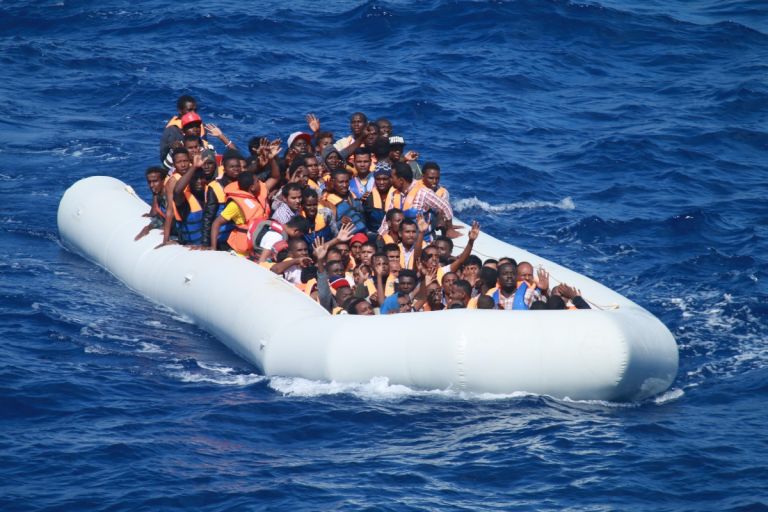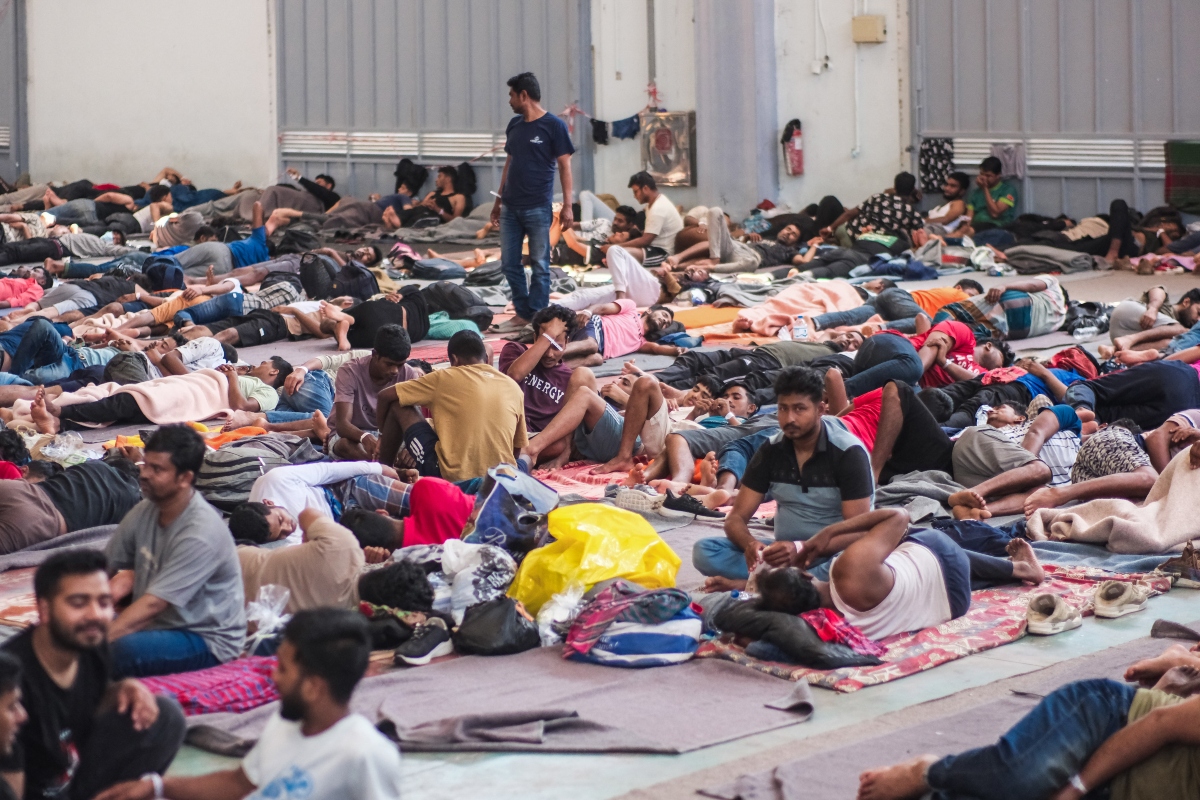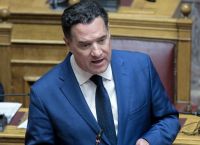Libyan Government to Europeans: 3-4 Million Illegal Migrants in the Country – We Are Battling Gangs

Πηγή Φωτογραφίας: 160729-N-EU999-004 MEDITERRANEAN SEA (July 29, 2016) Migrants aboard an inflatable vessel approach the guided-missile destroyer USS Carney (DDG 64). Carney provided food and water to the migrants aboard the vessel before coordinating with a nearby merchant vessel to take them to safety. Carney is forward deployed to Rota, Spain, and is conducting a routine patrol in the U.S. 6th Fleet area of operations in support of U.S. national security interests in Europe. (U.S. navy photo by Chief Information Systems Technician Wesley R. Dickey/Released)
The internationally recognized Libyan government has expressed its readiness to collaborate with its European partners to address illegal migration, following a meeting between its officials and a European delegation in Tripoli.
The interim government in Tripoli estimates that there are currently three to four million illegal migrants in Libya. This statement came after a meeting between Prime Minister Abdul Hamid Dbeibah, along with his ministers, and senior European officials, including Greece’s Minister of Migration and Asylum, Thanos Plevris.
Tripoli described its efforts as a “battle against gangs” and “pockets of chaos,” while assuring that it has a “plan” aimed at dismantling human trafficking networks. The government emphasized its intent to sign a formal agreement with the European Union for the effective management of migration.

The statement detailed the composition of Tuesday’s high-level ministerial meeting, which included several ministers responsible for internal affairs and representatives from European and international organizations. The discussions focused on the growing challenges of illegal migration and the urgent need for a collective, comprehensive approach to tackle this complex issue.
Participants included EU Commissioner for Home Affairs Magnus Brunner, Greek Minister of Migration and Asylum Thanos Plevris, Italian Interior Minister Matteo Piantedosi, Maltese Minister for Home Affairs, Security, Reforms, and Equality Byron Camilleri, EU Ambassador to Libya Nicola Orlando, and EU Director-General for the Middle East, North Africa, and Gulf Region, Ambassador Stefano Sannino.
Prime Minister Abdul Hamid Dbeibah told European officials that Libya is waging a “real battle” against gangs and armed groups profiting from the migration crisis and engaging in human trafficking and organized crime. He stressed that these actors pose a direct threat to both local and international security.
Dbeibah noted that the government has tasked the transitional Ministry of Interior with preparing a “comprehensive national plan” to address migration, focusing on practical cooperation with partners and reflecting a clear political will to build sustainable solutions.
He stated that this plan aligns with a large-scale national campaign, supported by several friendly countries, aimed at dismantling trafficking networks, strengthening border control, and restoring order in areas exploited by organized crime.
According to Tripoli, “the Prime Minister emphasized that addressing migration is linked to the broader security framework, arguing that expanding state authority and eliminating pockets of chaos directly contributes to border control and reducing illegal activity.” He added that “the government’s vision goes beyond reducing migration flows, encompassing the establishment of effective institutions that respect sovereignty and uphold human dignity, calling for international cooperation based on mutual respect and shared responsibility rather than temporary solutions.”
Deputy Interior Minister Emad al-Trabelsi announced that the national plan will begin with increased voluntary repatriation and include the deportation of anyone who entered the country illegally and caused security or social issues. He also estimated that there are currently three to four million illegal migrants in Libya.
Al-Trabelsi stressed that “the situation demands serious international cooperation” and expressed the transitional government’s ambition to sign a formal agreement with the European Union to institutionalize and effectively manage migration, ensuring burden-sharing and enhanced stability in Libya and the region.
Source: pagenews.gr
Διαβάστε όλες τις τελευταίες Ειδήσεις από την Ελλάδα και τον Κόσμο






Το σχόλιο σας